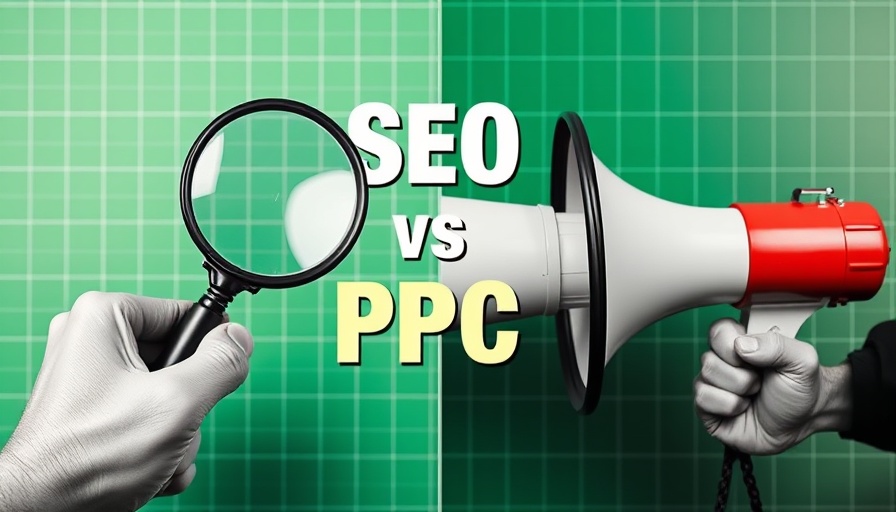
SEO vs. PPC: Understanding Your Digital Marketing Options
In today's competitive landscape, businesses are faced with numerous strategies to promote their products and services online. Among these, SEO (Search Engine Optimization) and PPC (Pay-Per-Click advertising) stand out as two of the most prominent methods. While they are fundamentally different in execution, both strategies offer unique benefits depending on your business goals.
Immediate Benefits of PPC Advertising
PPC advertising allows businesses to secure a prominent position in search results almost instantly. By paying for placement, companies can target specific keywords and reach potential customers right when they are searching for relevant products or services. This immediate visibility can lead to quick conversions—particularly beneficial for businesses aiming to drive sales in a short timeframe.
Another significant advantage of PPC is the ability to meticulously track campaign performance. Advertisers can analyze detailed metrics such as click-through rates (CTR) and conversion rates, allowing for real-time adjustments to maximize effectiveness and return on investment (ROI).
Long-Term Value of SEO
On the other hand, SEO focuses on improving a website's organic visibility through optimized content, authoritative backlinks, and technical site improvements. While the results of SEO take longer to materialize—often spanning several months or longer—the long-term benefits can be substantial.
Properly executed SEO can drive a consistent stream of high-intent traffic without the continuous cost per click associated with PPC. Furthermore, organic search results tend to foster greater trust among consumers, as studies reveal users perceive them as more credible than paid ads. As a result, businesses that invest in SEO often find themselves reaping the rewards long after the initial investment.
Choosing the Right Strategy for Your Business
The choice between SEO and PPC should be dictated by various factors, including your budget, industry, and specific marketing objectives. For companies with limited resources or those in highly competitive sectors, SEO may offer a more sustainable, cost-effective approach.
Conversely, businesses that require immediate visibility for a new product launch may benefit from the advanced targeting capabilities and quick results provided by PPC. Ultimately, many successful marketing strategies incorporate a blend of both approaches to optimize results.
The Importance of Monitoring and Adjusting Strategies
Both SEO and PPC strategies require continuous monitoring and adjustments. SEO demands vigilance to adapt to algorithm updates and maintain ranking positions, while PPC campaigns require analysis of performance metrics for cost management and efficient allocation of resources. Businesses should weigh these elements against their goals and available resources.
Conclusion: A Balanced Digital Marketing Approach
The discussion around SEO vs. PPC illustrates that there is no one-size-fits-all strategy for digital marketing. By understanding the strengths and weaknesses of each tactic, businesses can make informed decisions about how to best allocate their marketing budgets.
Whether you prioritize immediate returns with PPC or invest in a long-term SEO strategy, the key is to remain adaptable and continuously assess what works best for your unique business landscape.
 Add Row
Add Row  Add
Add 

 Add Row
Add Row  Add Element
Add Element 




Write A Comment